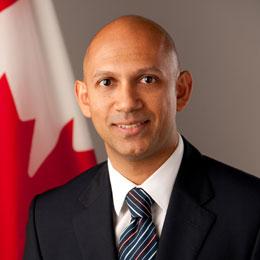Canada pension funds eye India projects

Canada is interested in investing its pension funds in urban development and infrastructure projects in India, a statement from the Ministry of Urban Development said.
High Commissioner of Canada Nadir Patel met Union Minister of Urban Development M. Venkaiah Naidu and said that it will open an office in this regard in Mumbai next month.
Patel added that the Government of Canada has about $ 750 billion of pension fund and is looking at huge investment opportunities now available in India in the context of new urban sector initiatives and infrastructure development.
The country is also interested in sharing its experience of building smart cities with the states and urban local bodies in India. Patel also informed that his Government is thinking of entering into a ‘Bilateral Investment Policy Agreement’ with India.
India already has more than 50 chaotic cities bursting at the seams with more than a million inhabitants each, and still growing rapidly, as they seek to keep pace with the huge country's rapid population growth and urbanisation.
By UN estimates there will be 404 million more people in Indian cities by 2050 than there are today.
Indian Prime Minister Narendra Modi has a plan to build 100 so-called Smart Cities in the coming years - cities designed from the ground up with functioning sanitation, streets where traffic flows freely, water and electricity supply.
Most Indian cities currently offer these services only sporadically. These new cities are to be created from scratch.
GIFT City in the western state of Gujarat, which is set in the semi-desert that lies between the economic centre of Ahmedabad and the capital Gandhinagar, will be the first Smart City.
Thus far there are just two glass towers, each 28 floors high, that protrude upwards from the desolate site of about 358ha. Sewage will be pumped at a speed of 90km/h
GIFT City could be an anomaly in a country where 300 million people lack access to electricity and around half the population of 1.2 billion have no toilet in their homes.
There has also been criticism of the exclusive nature of the Smart Cities. GIFT City is to be surrounded by a wall, with those entering being compelled to prove their identity.
There will be no place for the beggars, street hawkers, rickshaw drivers, paper collectors and shoe shiners that typify established Indian cities. Small-scale car mechanics, tailors and carpenters will also be excluded.
"The artificial city will always be dependent on other genuine cities," says Chinmay Patel, an architect.
According to a document from the Development Ministry in New Delhi, the Smart Cities are to be comparable with any developed European city, although studies show that what India really needs is housing for its poorer people.
There is a housing shortage of almost 19 million homes, almost all of them for the lower income groups, according to the government's own report on the economy.









